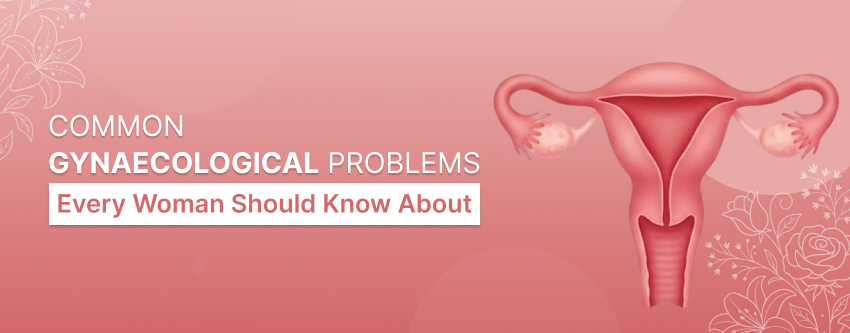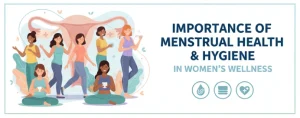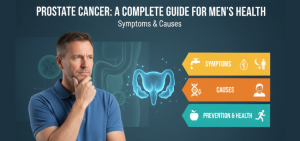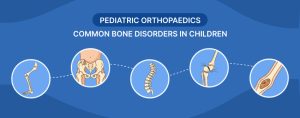Women’s reproductive health is central to their overall well-being, yet it often doesn’t receive the attention it deserves. From common infections to complex conditions like fibroids, endometriosis, or cancers, gynaecological problems can affect women at different stages of life. Early detection and timely treatment can make a significant difference, but social stigma and lack of awareness often delay care.
At Venkateshwar Hospital, the Department of Obstetrics & Gynaecology provides comprehensive and compassionate care for women across all life stages. With advanced facilities for minimally invasive surgeries, high-risk pregnancy management, infertility treatments, and gynae oncology, the department ensures personalised care for every patient. Supported by a team of experienced specialists, modern diagnostic tools, and a focus on holistic women’s health, Venkateshwar Hospital is committed to helping women maintain their reproductive health with confidence and dignity.
What Are Gynecological Problems?
Gynecological problems are medical conditions affecting the female reproductive system, including the uterus, ovaries, fallopian tubes, and vagina. These conditions can be minor, such as yeast infections, or serious, such as cervical cancer. Regular gynecological check-ups are essential for identifying issues early and ensuring timely treatment.
Menstrual Disorders
Menstrual problems are among the most common gynecological problems women experience.
1. Dysmenorrhea (Painful Periods)
Severe cramps caused by uterine contractions. Treatments may include lifestyle changes, hormonal therapy, or pain medication.
2. Heavy Menstrual Bleeding (Menorrhagia)
Unusually heavy periods may indicate hormonal imbalance, fibroids, or thyroid disorders such as hypothyroidism, which often cause heavy bleeding. Left untreated, it can cause anemia.
3. Irregular or Intermenstrual Bleeding
Spotting or bleeding between cycles may point to fibroids, hormonal imbalances, or other conditions that require medical evaluation.
4. Polycystic Ovary Syndrome (PCOS)
PCOS is a leading cause of infertility and is associated with insulin resistance, which increases risk for metabolic conditions such as type 2 diabetes.
Pelvic Pain and Related Conditions
Chronic or recurring pelvic pain is often a symptom of an underlying issue.
1. Endometriosis
A condition where tissue similar to the uterine lining grows outside the uterus. It causes severe cramps, painful intercourse, and fertility issues.
2. Uterine Fibroids
Benign growths in the uterus that can cause heavy bleeding, pelvic pressure, and bladder problems.
3. Ovarian Cysts
Fluid-filled sacs on the ovaries that are usually benign and asymptomatic; occasionally, they may rupture causing pain or bloating.
4. Pelvic Inflammatory Disease (PID)
Infection of reproductive organs, often caused by untreated STIs. It can lead to infertility if not treated early.
Also Read – Urology and Nephrology- Urinary and Renal Problem solutions
Vaginal and Urinary Problems
Vaginal and urinary problems are common concerns that can affect a woman’s comfort, health, and quality of life. These issues often arise from infections, hormonal changes, or structural concerns, and recognizing the symptoms early is key to effective treatment and prevention.
1. Vaginitis
Inflammation of the vagina caused by bacterial, yeast, or parasitic infections. Symptoms include itching, discharge, and burning.
2. Vaginal Yeast Infection
Very common in women. Causes itching, thick discharge, and burning. Recurrent yeast infections (four or more per year) should be evaluated by a healthcare provider to identify underlying causes.
3. Urinary Tract Infection (UTI)
A bacterial infection of the urinary system common in women, often managed alongside gynecologic health concerns.
4. Urinary Incontinence
Involuntary urine leakage, often linked to weak pelvic muscles or aging.
5. Pain When Urinating
A common symptom of urinary tract infections (UTIs) and sexually transmitted infections (STIs) and should be promptly evaluated.
6. Vaginal Discharge
Normal discharge helps keep the vagina clean. However, unusual color, odor, or texture may signal infection.
7. Painful Sexual Intercourse (Dyspareunia)
A common but under-discussed issue. Causes range from vaginal dryness during menopause to endometriosis or infections.
Also Read – The Significance Of Women Health Care In The Modern India
Reproductive and Fertility Issues
Reproductive and fertility issues can significantly impact a woman’s physical and emotional well-being. Early identification and timely medical care are essential to address conditions affecting conception, pregnancy, and overall reproductive health.
1. Infertility
Conditions like PCOS, fibroids, endometriosis, and PID can all cause infertility. If conception doesn’t occur after 12 months of trying (or 6 months if over 35 years old), consult a fertility specialist.
2. Uterine Prolapse
Occurs when the uterus descends into the vaginal canal, causing symptoms like pelvic pressure, urinary difficulties, bowel changes, and sometimes painful intercourse.
Cancer-Related Concerns
1. Cervical Cancer
Mainly caused by HPV infection. Regular Pap smears and HPV vaccines are key preventive measures.
2. Uterine Cancer
More common after menopause. Symptoms include abnormal bleeding and pelvic pain.
3. Breast Cancer
Early signs may include lumps in the breast. Awareness of breast changes and regular mammograms as per guidelines aid detection.
4. Lumps in the Labia Area
Usually benign, such as cysts or lipomas; however, any new or persistent lumps should be evaluated by a gynecologist.
Menopause and Perimenopause
Hormonal transitions bring hot flashes, mood swings, vaginal dryness, and sleep issues. Management of menopausal symptoms may include hormone therapy under medical supervision, along with lifestyle adjustments and medications for symptom relief.
When to See a Gynecologist?
You should consult a doctor if you notice:
- Persistent pelvic pain
- Heavy or irregular bleeding
- Abnormal discharge
- Pain during sex
- Lumps in the breast or genital area
Routine check-ups are equally important even if no symptoms are present.
Preventive Tips for Gynecological Health
Women are encouraged to take proactive steps to maintain reproductive health and prevent complications.
- Maintain good personal hygiene – Regular cleaning and care reduce the risk of infections.
- Eat a balanced diet and stay active – Proper nutrition and exercise support hormonal balance and overall well-being.
- Practice safe sex – Use protection to prevent sexually transmitted infections and protect reproductive health.
- Schedule regular screenings – Routine Pap smears, HPV tests, and gynecological check-ups at Venkateshwar Hospital help in the early detection and management of potential health issues.
- Pay attention to unusual symptoms – Any irregular bleeding, discharge, or discomfort should not be ignored and should be evaluated promptly.
Conclusion
Women face a wide range of common gynecological problems, from menstrual disorders and pelvic pain to fertility challenges and cancers. Prioritizing reproductive health through awareness, preventive care, and regular medical visits helps protect long-term well-being. By taking proactive steps, women can lead healthier, more confident lives.
Also Read – Why women are prone to joint issues?
Frequently Asked Questions
1. What are the most common gynaecological problems?
Some of the most common gynaecological problems include menstrual disorders, polycystic ovary syndrome (PCOS), endometriosis, fibroids, vaginal infections, urinary tract infections, and infertility. Many of these can be managed effectively with timely medical care.
2. What is the difference between PCOS and endometriosis?
PCOS is a hormonal disorder that affects ovulation, periods, skin, and weight, while endometriosis happens when tissue similar to the uterine lining grows outside the uterus. Both conditions can cause pelvic pain and fertility issues, but their causes and treatments are different.
3. Can stress cause irregular periods?
Yes. Stress can affect hormone levels in the body, which may lead to delayed, missed, or irregular menstrual cycles. Managing stress through exercise, relaxation techniques, and good sleep can often help restore regularity.
4. How are fibroids diagnosed?
Fibroids are usually diagnosed through pelvic examinations, ultrasounds, or MRI scans. If symptoms like heavy bleeding or pelvic pain are present, your gynaecologist may recommend further imaging or blood tests.
5. What are the early signs of cervical cancer?
Early signs may include abnormal vaginal bleeding, unusual discharge, or pelvic pain. Regular Pap smears and HPV testing are crucial for detecting cervical cancer at an early stage when treatment is most effective.
6. Can yeast infections go away on their own?
Mild yeast infections may clear up without treatment, but most require antifungal creams or oral medication. If infections keep coming back, you should consult a doctor for further evaluation.
7. Is vaginal discharge always a cause for concern?
Not always. Vaginal discharge is normal and helps keep the vagina clean. However, changes in colour, odour, or consistency may indicate an infection and should be checked by a doctor.
8. What should I expect during a routine gynaecological exam?
A routine exam usually includes a discussion about your health history, a pelvic exam, and sometimes a Pap smear. Your doctor may also suggest breast exams or other tests depending on your age and symptoms.
Medically Reviewed by — Dr. Dipti K. Yadav (Associate Director & Unit Head – Obstetrics & Gynaecology)













